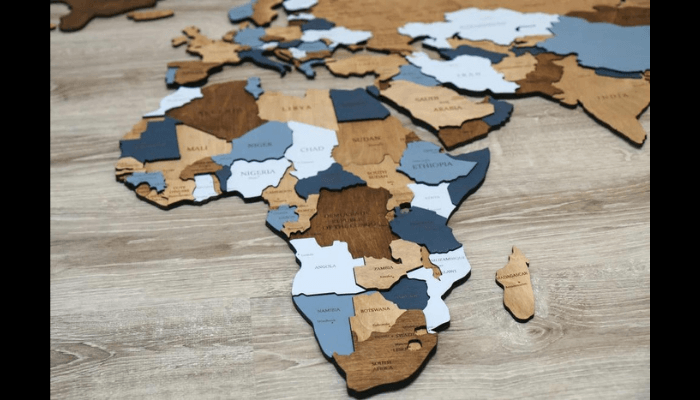In a move to drive investments in Nigeria and enhance the African Continental Free Trade Area (AfCFTA), stakeholders have concluded plans to hold the fourth edition of the Ecofair.
The Ecofair themed ‘Economic Potential of AfCFTA on Commerce and Trade in Africa’ which will showcase goods, services, and investment opportunities will be declared open on September 6th. The trade fair will last for 10 days between September 6th and 15th, 2024.
Ejarkaminor Riicolins, chief executive of Ecofair, said his organisation is promoting intra-Africa economic integration through several economic activities across the supply chain.
He noted that the Ecofair was birthed in Ivory Coast and has held three previous editions, saying Nigeria is on the verge of holding the fourth edition which comes with four major events.
According to him, the fair is a four-in-one event with several activities with 10,000 potential buyers of goods and services expected daily during the 10-day event.
He said the event will be held day and night during the period, which will be the first of its kind in the country, noting that Lagos is very safe for doing business.
“I found out that most parts of Lagos do not sleep and they are not doing business. So, we want to transition it to making money by doing business,” Riicolins said.
“We are not only inviting ECOWAS countries. We are inviting over 40 countries to participate in the various events of the fair and these people will bring to the doorsteps of Nigerians those things they would have gone seeking for a visa to get.”
Dera Nnamdi, Customs Area Controller, Tincan Port said the Nigerian Customs considers trade a significant tool for the development of any country and that the security operative takes seriously Nigeria’s trade with the continent and the West African region, especially at a time when the country is translating to becoming a major exporting nation.
He stated that Customs is not comfortable with the very low level of trade among African countries, which currently stands at roughly 14.4 percent despite the continent accounting for 63 percent of the global population.
“We think trade among African countries should be higher, coming back to West Africa, we think it should be higher too, considering that among the West African countries, our current population accounts for the majority of the 355 million people,” he said.
“Trade in West Africa is trade in Nigeria,” he noted. He said limited infrastructure and insecurity are the major things that affect trade on the continent, adding that ports globally operate 24 hours and Nigeria ports should also operate 24 hours.
He stated that vessel communication is very poor in Africa while calling on investors to invest in the area to promote vessel movements.
In his keynote address, Christophe Bazivamo, Rwanda’s high commissioner to Nigeria said AfCFTA stands as a testament to the continent’s collective vision.
A vision, he described as an Africa united in commerce as one unified trade market, empowered by increased trade among African countries, and thriving on shared prosperity, a vision of an Africa with free movement of people following the removal of visas.
Bazivamo said Rwanda, like several other African countries, recognises the immense potential that AfCFTA holds, saying it has witnessed a firsthand transformative power of intra-Africa trade fueled by the removal of tariffs.
“This is just one example of the many success stories waiting to be written across our continent. However, unlocking the full potential of the AfCFTA requires more than just eliminating tariffs. We must address the critical issue of infrastructure,” he said.
“Without robust ground, air, and water transport networks, efficient logistics will remain a dream. We must invest in modern roads, efficient railways, and revitalised ports, stitching our continent together in a seamless web of connectivity.”
“Only then can trade thrive, delivering goods swiftly and cost-effectively across vast distances.”

